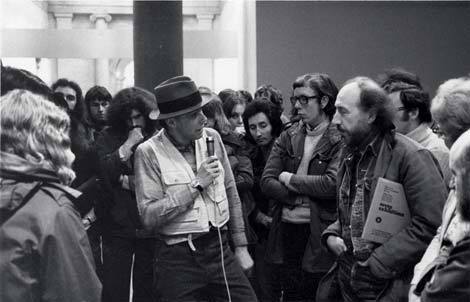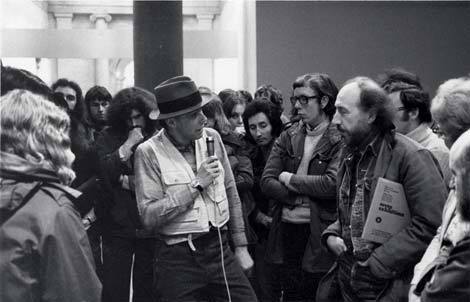Everyone is a designer, developer, product owner, system administrator, and artist

IN AN EARLIER post, I wrote about the connections between research, product management, user experience design, product design, and prototyping. This post expands on the same theme: the potential that comes from working across disciplines, not within them.
What does Joseph Beuys have to do with all this? When I was in high school in San Francisco, where I grew up, I discovered a German artist named Joseph Beuys. His dictum was “Everyone’s an artist.” At the time I was in love with chemistry, neurology, and science but I could see that ever-increasing specialization would be required if I became a chemist or a neurologist. This seemed odd to me. Wouldn’t I be more capable (not to mention happier) if I were a specialist in a few areas? When I was sixteen years old the answer that I received from my neurologist mentor was basically: you cannot be a specialist in a few areas. You must choose, and choose soon.
Then I read an auto-biographical essay by Joseph Beuys, in it he described being a biological sciences student at a prestigious German university. He was a good student but an uncertainty was nagging him. He felt possibly unsuited to become a professional biologist. This resonated with my sixteen-year old self. Beuys described one particular afternoon when he experienced his epiphany. He was in a lecture hall listening to a professor who had spent his entire life studying the inner organelles of a tiny one-celled organism. Beuys stood up and walked out of the lecture hall, never to return to science. Instead he turned to art.
He became one of the most influential artists of the Post-WWII era, helping to found the Fluxus movement which inspired many artists to think more conceptually about their art, and what could be accomplished with it. Joseph Beuys saw transforming society as his mission, but it was not his art that would transform society, it was everyman who would do that:
Joseph Beuys believed that it was possible to transform society
through the creativity of every individual. He emerged as an
artist amid Germany's post-war reconstruction, claiming for
art a unique role in the spiritual regeneration of society,
in opposition to a materialistic culture.
Most product managers, researchers, designers, and software engineers who toil long hours at technology startups and corporations would say that they are motivated to work because, deep down, they are striving ‘make the world a better place’—through software. And software is changing the world, sometimes for the better. Look at the advances we’ve made in the last 20 years: peer-to-peer technologies, artificial intelligence, machine learning, computer vision, mobile computing, augmented reality, new markets, technology-based crypto-currencies… I could go on and on. But by becoming increasingly specialized, narrowly focused on ‘just engineering’ or ‘just designing’ we risk losing the sort of holistic, overarching, transformative vision that can only come from all of us collaborating together.
If you want to make the world a better place, the creativity of every individual is needed. This is what Beuys teaches us.




